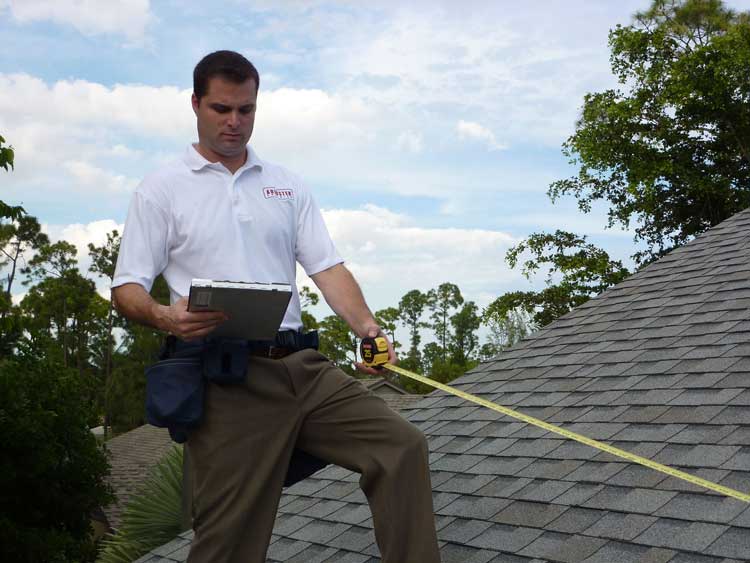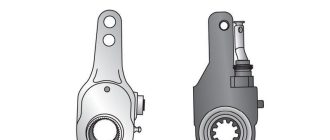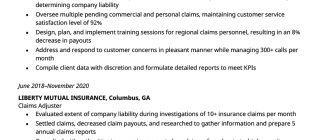
The Personal Claims Adjuster: Who Are They and What Do They Do?
Are you wondering what a personal claims adjuster does? Do you know who they are and what they do? If so, you have come to the right place. In this article, we will explore the role of a personal claims adjuster and cluster all the information you need to know about them.
A personal claims adjuster is a professional who is responsible for handling insurance claims on behalf of the policyholder. They play a crucial role in the insurance process, ensuring that claims are processed accurately and efficiently. Unlike other types of adjusters, such as auto or property adjusters, personal claims adjusters handle claims related to personal insurance policies, such as health, life, or disability insurance.
So, what exactly does a personal claims adjuster do?
A personal claims adjuster investigates insurance claims, evaluates the extent of the policyholder’s loss, and determines the amount of compensation they are entitled to. They work closely with the policyholder, insurance companies, and other parties involved in the claim process to negotiate settlements and resolve any disputes that may arise.
In a nutshell, personal claims adjusters are the advocates for policyholders, ensuring that they receive the coverage and compensation they are owed after a loss or accident. Whether it’s helping someone recover from a medical emergency or assisting a family in difficult times, personal claims adjusters are there to provide guidance and support.
If you have experienced a loss and need assistance with your insurance claim, consider reaching out to a personal claims adjuster. Their expertise and knowledge in this field can make a significant difference in the outcome of your claim.
What is a Personal Claims Adjuster?
A Personal Claims Adjuster is an individual who works in the insurance industry to assess and investigate insurance claims. They are responsible for evaluating the extent of damages or losses reported by policyholders and determining the appropriate amount of compensation.
Unlike other types of claims adjusters who handle a wide range of claims, personal claims adjusters specialize in dealing with individual policyholders and their specific insurance claims. They are trained to handle various types of personal claims, including property damage, automobile accidents, and personal injury.
Personal claims adjusters play a crucial role in the insurance claims process. They work closely with policyholders to gather necessary information, such as photographs, police reports, and medical records, to support and document the claim. They also evaluate the policy coverage and determine the applicability and limits of insurance policies.
Once all the necessary information is gathered, the personal claims adjuster will investigate the circumstances surrounding the claim. This may involve visiting the scene of the incident, interviewing witnesses, or consulting with experts in relevant fields.
Based on their investigation, personal claims adjusters then determine the validity of the claim and negotiate with the insurance company to ensure fair compensation for the policyholder. They must have strong negotiation and communication skills to effectively advocate for their clients.
A personal claims adjuster also acts as a trusted advisor for policyholders, guiding them through the claims process and providing support during what can be a stressful and overwhelming time. They may also help policyholders understand their rights and the terms of their insurance policies.
In summary, a personal claims adjuster is a specialized type of adjuster who works with individuals to assess and investigate personal insurance claims. They handle various types of claims and play a crucial role in ensuring policyholders receive fair compensation from their insurance company.
Responsibilities of a Personal Claims Adjuster
A personal claims adjuster is a professional who plays a crucial role in the insurance industry. They are responsible for handling and managing the claims process for policyholders, ensuring that they receive a fair and timely settlement for their losses. Here are some of the main responsibilities of a personal claims adjuster:
- Investigating insurance claims made by policyholders
- Gathering relevant information and evidence related to the claim
- Analyzing policy documents and coverage to determine the validity of the claim
- Working with policyholders to assess the extent of the loss or damage
- Conducting interviews with witnesses, claimants, and other relevant parties
- Collaborating with experts, such as medical professionals or engineers, to evaluate the value of the claim
- Reviewing and interpreting insurance policies and contracts
- Calculating the amount of compensation that policyholders are entitled to receive
- Negotiating settlements with policyholders or their legal representatives
- Documenting all findings and decisions made during the claims process
- Communicating with policyholders, insurance agents, and other stakeholders regarding the status and progress of the claim
- Ensuring compliance with insurance laws and regulations
In summary, personal claims adjusters are the key individuals who assess, investigate, and evaluate insurance claims. They work closely with policyholders to ensure that they receive the appropriate compensation for their losses. Their expertise and attention to detail are essential in determining the outcome of a claim.
Skills Required to be a Personal Claims Adjuster
A personal claims adjuster is responsible for handling insurance claims, determining the validity of a claim, and negotiating settlements with the policyholders. They are trained professionals who assess the extent of the damage or loss and determine the amount that the insurance company should pay.
As a personal claims adjuster, there are several key skills that are required to succeed in this role:
| 1. Good Communication Skills | Personal claims adjusters need to have excellent communication skills in order to effectively communicate with policyholders, insurance agents, and other professionals involved in the claims process. They must be able to explain complex insurance policies and procedures clearly and confidently. |
| 2. Analytical Skills | Being able to analyze and interpret policy documents, medical records, and other relevant information is crucial for personal claims adjusters. They need to be detail-oriented and able to identify any discrepancies or inconsistencies in order to accurately determine the validity of a claim. |
| 3. Negotiation Skills | Personal claims adjusters often need to negotiate settlements with policyholders and other parties involved in the claims process. Strong negotiation skills are essential in order to reach fair and equitable settlements that satisfy all parties involved. |
| 4. Time Management Skills | Managing multiple claims and meeting deadlines is a crucial part of being a personal claims adjuster. They need to be able to prioritize their workload and efficiently handle all aspects of the claims process within established timeframes. |
| 5. Knowledge of Insurance Policies and Regulations | Personal claims adjusters need to have a comprehensive understanding of insurance policies, including coverage limits, exclusions, and deductibles. They also need to stay up-to-date with changes in insurance regulations and industry practices. |
In summary, personal claims adjusters are skilled professionals who play a vital role in the insurance industry. Their ability to effectively communicate, analyze information, negotiate settlements, manage their time, and stay knowledgeable about insurance policies and regulations are key skills that are required to succeed in this role.
Qualifications and Education for Personal Claims Adjusters
Personal claims adjusters play a crucial role in the insurance industry. They are responsible for assessing and evaluating insurance claims that individuals file after an accident or a loss. In order to excel in this role, personal claims adjusters need to possess a specific set of qualifications and education.
First and foremost, personal claims adjusters need to have a strong knowledge and understanding of insurance policies and regulations. They must be familiar with the different types of insurance coverage and how each claim should be handled. This knowledge allows them to accurately assess the validity and amount of the claims.
Personal claims adjusters also need to have excellent analytical and problem-solving skills. They must be able to review and evaluate all the evidence and documentation related to a claim, and then make fair and accurate decisions. They must be able to analyze complex situations, identify the main issues, and suggest appropriate solutions.
Communication skills are also crucial for personal claims adjusters. They need to effectively communicate with claimants, witnesses, lawyers, and insurance company representatives. They must be able to gather all the necessary information, ask the right questions, and explain their decisions in a clear and concise manner.
In terms of education, most personal claims adjusters have at least a high school diploma or equivalent. However, many employers prefer candidates with a bachelor’s degree in a relevant field such as business, finance, or insurance. Some employers may also require additional certifications or licenses, depending on the specific industry and jurisdiction.
Overall, personal claims adjusters play a crucial role in ensuring that insurance claims are handled accurately and efficiently. They need to possess a combination of technical knowledge, analytical skills, and strong communication abilities in order to excel in this demanding profession.
| Strong knowledge of insurance policies and regulations | High school diploma or equivalent |
| Excellent analytical and problem-solving skills | Bachelor’s degree in a relevant field |
| Effective communication skills | Additional certifications or licenses may be required |
Advantages of Hiring a Personal Claims Adjuster
When faced with an insurance claim, you might be wondering what your options are and how to proceed. Hiring a personal claims adjuster can be a smart choice to navigate this complex process. But who exactly are they and what do they do?
A personal claims adjuster is a highly skilled professional who works on behalf of the policyholder to assess, review, and negotiate insurance claims. They are experts in their field, equipped with the knowledge and experience necessary to handle your claim efficiently and effectively.
One of the main advantages of hiring a personal claims adjuster is their ability to navigate through the complexities of the insurance claims process. Insurance policies can be filled with jargon and legal terminology that can confuse policyholders. A personal claims adjuster can help you understand the intricacies of your policy and ensure that you receive the full compensation you are entitled to.
Additionally, a personal claims adjuster can handle the time-consuming task of gathering and organizing the necessary documentation for your claim. They will analyze the documentation and build a strong case on your behalf. This allows you to focus on other important matters while they handle the tedious details.
Another advantage of hiring a personal claims adjuster is their ability to negotiate with the insurance company. Insurance companies often try to settle claims for the lowest amount possible. However, a skilled personal claims adjuster knows the true value of your claim and will fight for fair compensation. They will negotiate with the insurance company to ensure that you receive the maximum payout.
Finally, hiring a personal claims adjuster can provide peace of mind. Dealing with an insurance claim can be stressful and overwhelming, especially in times of crisis. Having a personal claims adjuster by your side can alleviate some of this stress, as they will guide you through the entire process and ensure that your best interests are protected.
In conclusion, hiring a personal claims adjuster offers numerous advantages. They are skilled professionals who can navigate the complexities of the insurance claims process, gather the necessary documentation, negotiate with the insurance company, and provide peace of mind. When faced with an insurance claim, hiring a personal claims adjuster can make all the difference.
Types of Claims Handled by Personal Claims Adjusters
Personal claims adjusters are professionals who handle a wide range of claims related to personal property, liability, and personal injury. They play a crucial role in the insurance industry, ensuring that policyholders receive fair compensation for their losses. Here are some of the types of claims that personal claims adjusters handle:
1. Property Claims: Personal claims adjusters assess and investigate claims related to damage to personal property, such as homes, vehicles, and personal belongings. They determine the extent of the damage, estimate repair or replacement costs, and negotiate settlements with the policyholders.
2. Liability Claims: When accidents or incidents occur where the policyholder is at fault, personal claims adjusters handle liability claims. These claims involve bodily injury or property damage caused by the policyholder, and the adjuster investigates the circumstances of the incident, evaluates the damages, and negotiates settlements with the affected parties.
3. Personal Injury Claims: When policyholders or their dependents sustain personal injuries due to accidents or incidents, personal claims adjusters handle personal injury claims. They investigate the incident, gather medical records and other relevant evidence, evaluate the extent of the injuries, and negotiate settlements to cover medical expenses, lost wages, and pain and suffering.
4. Catastrophic Claims: Personal claims adjusters are also involved in handling catastrophic claims. These claims arise from major natural disasters, such as hurricanes, earthquakes, or wildfires. The adjusters assess the damage caused, help policyholders with filing claims, and work with the insurance company to facilitate the claims process and ensure fair compensation.
These are just a few examples of the types of claims that personal claims adjusters handle. They are trained professionals who understand the intricacies of insurance policies and work diligently to expedite the claims process while providing exceptional customer service.
Steps to Become a Personal Claims Adjuster
To become a personal claims adjuster, there are several important steps that you need to follow:
Step 1: Research the Role
Start by gaining a thorough understanding of what a personal claims adjuster does. Research the job responsibilities, necessary skills, and educational requirements. This will help you determine if this is the right career path for you.
Step 2: Obtain the Required Education
In order to become a personal claims adjuster, you typically need to have at least a high school diploma or equivalent. However, some employers may require a bachelor’s degree in a related field such as insurance or business.
Step 3: Gain Relevant Work Experience
While not all employers require previous work experience, it can greatly enhance your chances of being hired as a personal claims adjuster. Look for entry-level positions or internships in the insurance industry to gain valuable hands-on experience.
Step 4: Develop Key Skills
Personal claims adjusters need a variety of skills to succeed in their role. These include strong analytical and problem-solving abilities, excellent communication skills, attention to detail, and the ability to negotiate and resolve conflicts.
Step 5: Obtain Licensure
In order to work as a personal claims adjuster, you may need to obtain a state-specific license. Licensing requirements vary by state, but typically involve passing an exam and completing any necessary training or education.
Step 6: Join Professional Organizations
Consider joining professional organizations such as the National Association of Independent Insurance Adjusters or the American Association of Public Insurance Adjusters. These organizations provide networking opportunities, continuing education, and resources to help you advance in your career.
Step 7: Keep Learning and Growing
Continuously educate yourself on new industry trends, regulations, and best practices in personal claims adjusting. This will help you stay competitive in the field and provide the best possible service to your clients.
By following these steps, you can take the necessary actions to become a successful personal claims adjuster and thrive in this rewarding career.
How Personal Claims Adjusters Evaluate Claims
Personal claims adjusters are professionals who assess and evaluate insurance claims made by individuals. They play a crucial role in the insurance industry, ensuring that claims are valid and processed efficiently.
When evaluating claims, personal claims adjusters follow a specific process to determine the coverage and compensation that an individual is entitled to. Here is an overview of what they do:
| 1 | Gathering Information |
| 2 | Investigating the Claim |
| 3 | Assessing Damages |
| 4 | Reviewing Policy Coverage |
| 5 | Calculating Compensation |
| 6 | Communicating the Decision |
During the information gathering stage, personal claims adjusters collect all relevant details regarding the incident, such as the nature of the claim and any supporting documentation.
Once they have gathered all the necessary information, they move on to investigating the claim. This involves conducting interviews, inspecting the damage, and gathering evidence.
Once the investigation is complete, personal claims adjusters assess the extent of the damages. They determine the cost of repairs, replacement, medical expenses, or any other relevant factors.
The next step involves reviewing the individual’s insurance policy to determine the coverage and limitations. They compare the damages to the policy terms to decide what is and is not covered.
After reviewing the policy, personal claims adjusters calculate the compensation that the individual is entitled to receive. They consider factors such as the policy coverage, deductibles, and any applicable limits.
Finally, personal claims adjusters communicate their decision to the individual. This includes informing them of the approved coverage and compensation amount, as well as any additional steps they need to take.
In summary, personal claims adjusters are responsible for evaluating claims made by individuals. They gather information, investigate the claim, assess damages, review policy coverage, calculate compensation, and communicate the decision. They are essential in ensuring that insurance claims are processed fairly and efficiently.
Benefits of Using a Personal Claims Adjuster
When it comes to handling insurance claims, a personal claims adjuster can make a world of difference. They are specialists who know exactly what they are doing and can help you navigate the complex world of insurance claims. Here are some of the benefits of using a personal claims adjuster:
|
Expertise and Knowledge: |
Personal claims adjusters are trained professionals who specialize in handling claims. They have in-depth knowledge about the insurance industry and can provide valuable insights and advice throughout the claims process. |
|
Personalized Service: |
Unlike insurance companies, who often handle claims in clusters, a personal claims adjuster focuses solely on your claim. They take the time to understand your specific situation and work closely with you to ensure that you get the best possible outcome. |
|
Faster Resolution: |
With their expertise and experience, personal claims adjusters can expedite the claims process. They know exactly what documents and evidence are needed to support your claim and can gather everything quickly and efficiently. |
|
Negotiation Skills: |
Personal claims adjusters are skilled negotiators who can effectively communicate with insurance companies on your behalf. They know how to navigate the often complex and adversarial claims process, ensuring that you receive a fair and reasonable settlement. |
|
Reduced Stress: |
Dealing with the aftermath of a loss or damage can be incredibly stressful. By hiring a personal claims adjuster, you can offload the burden of handling the claim onto a professional. They will handle all the paperwork, phone calls, and negotiations, allowing you to focus on getting your life back on track. |
Overall, using a personal claims adjuster can greatly benefit individuals who are dealing with insurance claims. They have the expertise, knowledge, and skills to maximize your chances of a successful claim and ensure that you receive the compensation you deserve.
The Role of a Personal Claims Adjuster in the Insurance Industry
A personal claims adjuster is an individual who plays a crucial role in the insurance industry. They are responsible for handling and evaluating claims made by policyholders after an accident or an unfortunate event.
What sets a personal claims adjuster apart is their ability to empathize with policyholders and provide personalized assistance throughout the claims process. They serve as the primary point of contact for policyholders, guiding them through the necessary steps to file a claim and ensuring a smooth claims experience.
A personal claims adjuster is skilled in analyzing and interpreting insurance policies to determine coverage and liability. They investigate the circumstances surrounding a claim, gather relevant information, and assess the extent of the loss or damage. This may involve conducting site visits, interviewing witnesses, and collaborating with other professionals, such as lawyers or medical experts, to gather evidence.
In addition to their investigative tasks, personal claims adjusters must also possess excellent negotiation and communication skills. They negotiate settlements with policyholders and third-party claimants, aiming to reach a fair resolution for all parties involved. Their goal is to ensure that policyholders receive the appropriate compensation for their losses, while also protecting the interests of the insurance company.
Personal claims adjusters are often part of a larger cluster of professionals within an insurance company. They work closely with underwriters, claims managers, and other adjusters to ensure claims are handled efficiently and effectively. Their expertise and attention to detail contribute to the overall risk management strategy of an insurance company.
In summary, personal claims adjusters are an essential component of the insurance industry. They play a vital role in helping policyholders navigate the claims process and ensuring that all parties involved are treated fairly. Their expertise in analyzing, negotiating, and communicating makes them invaluable assets in the insurance industry.
Common Challenges Faced by Personal Claims Adjusters
Being a personal claims adjuster comes with its fair share of challenges. They have to navigate through a cluster of claims, assess damages, and negotiate settlements with claimants. But that’s not all.
One of the major challenges that personal claims adjusters face is the emotional intensity of the job. Dealing with individuals who have experienced loss or damage can be emotionally draining. Claims adjusters need to remain empathetic and patient while handling these cases.
Another challenge is the complexity of the claims themselves. Personal claims adjusters are faced with a variety of different claims, ranging from property damage to personal injuries. Each claim requires a different set of skills and knowledge, making it crucial for adjusters to constantly update their expertise.
Moreover, personal claims adjusters often face challenges when it comes to gathering evidence. Collecting accurate and relevant information is crucial for claims evaluation. Adjusters need to be diligent in their investigation process to ensure that they have all the necessary facts to make informed decisions.
Lastly, personal claims adjusters often face resistance from claimants. Claims adjusters are seen as representatives of the insurance company, and some claimants may have reservations or mistrust towards them. Building trust and effectively communicating the claims process can be a challenge for adjusters.
In summary, personal claims adjusters play a crucial role in assessing and resolving claims. They face challenges with the emotional intensity of the job, the complexity of the claims, evidence gathering, and building trust with claimants. Despite these challenges, personal claims adjusters are dedicated professionals who strive to provide the best service to their clients.
Q&A:
What is a personal claims adjuster?
A personal claims adjuster is a professional who assesses and determines the amount of money an insurance company should pay to a policyholder for a covered loss. They investigate the claims, gather evidence, and negotiate settlements on behalf of the insurance company.
What qualifications do you need to become a personal claims adjuster?
The qualifications to become a personal claims adjuster vary by state, but generally, you need a high school diploma or equivalent. Some states also require a license or certification. Strong analytical and negotiation skills, attention to detail, and knowledge of insurance policies and regulations are also important.
What is the typical salary for a personal claims adjuster?
The salary for a personal claims adjuster can vary depending on factors such as experience, location, and the size of the insurance company. On average, personal claims adjusters earn between $40,000 and $70,000 per year.
What are the main challenges faced by personal claims adjusters?
Personal claims adjusters face various challenges in their role. Some of the main challenges include handling emotional and difficult clients, dealing with fraudulent or exaggerated claims, and working under strict deadlines and pressure. Additionally, the job can require traveling and working in different settings and conditions.






